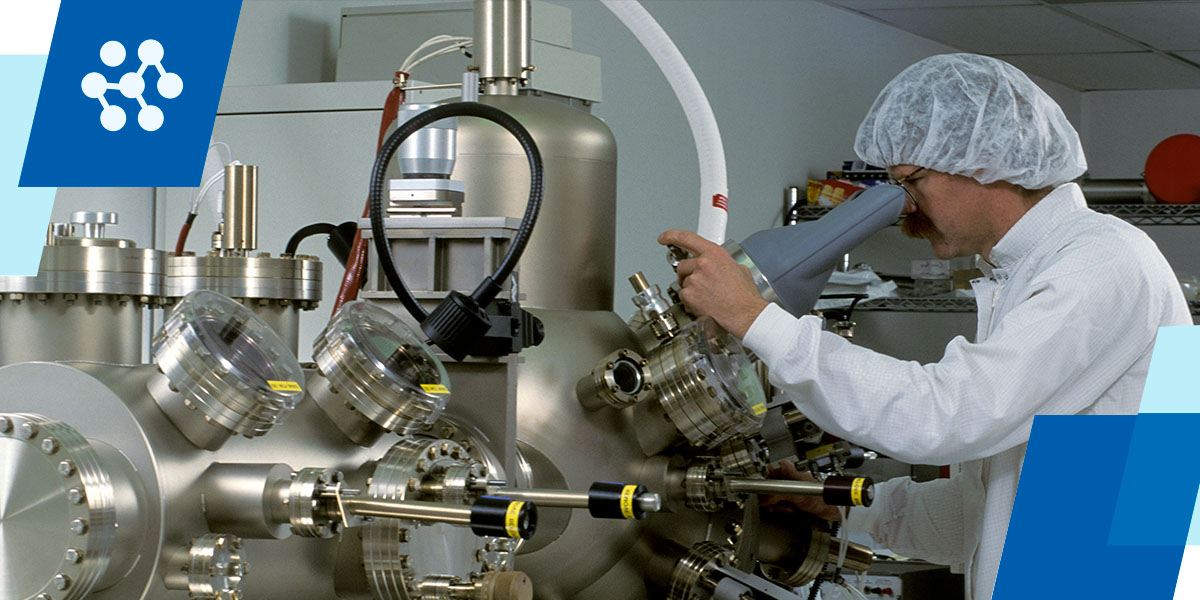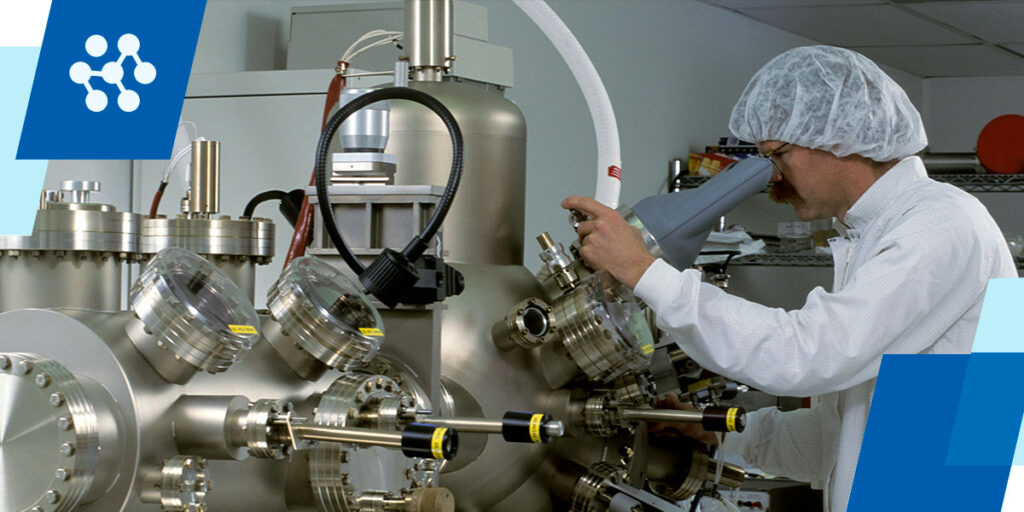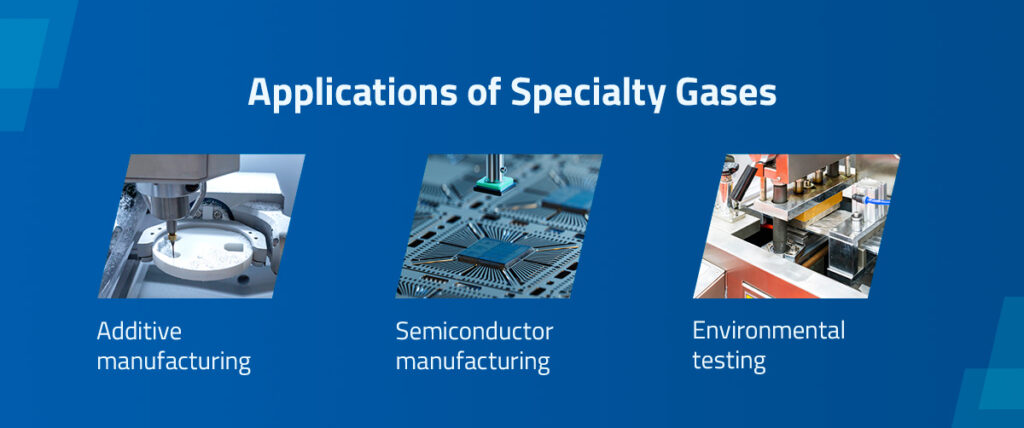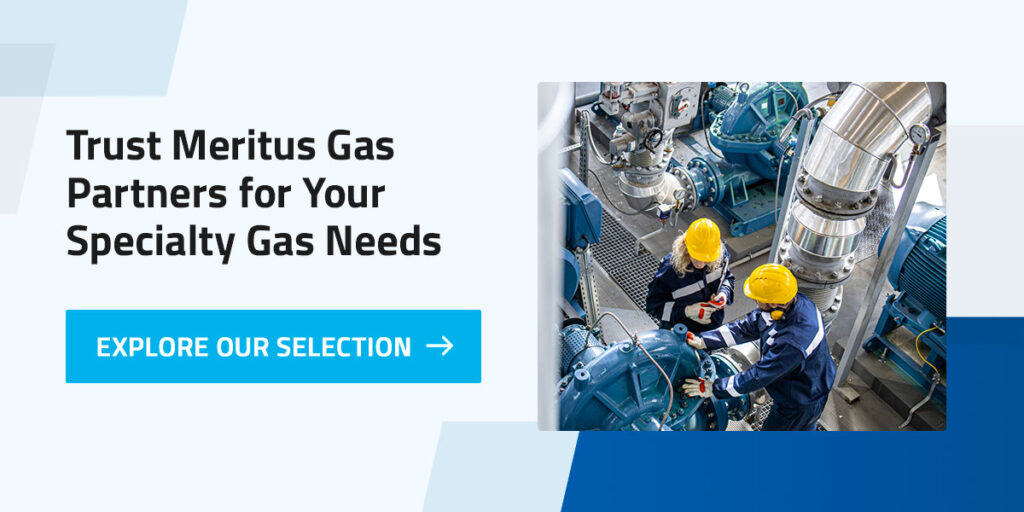

When you’re searching for compressed gases for your business operations, you’ll likely come across grades of gases referred to as “specialty.” With so many types of gases already on the market, you may not know how specialty gases differ from natural compressed gases and why they might be best for your needs. Explore our guide to learn more about specialty gases, their applications in different industries and how you can choose the best specialty gas supplier for your business.
A specialty gas is made up of unique chemical compounds and is used in industrial, medical and scientific applications. These gases can come pre-made off the shelf or feature custom, one-off mixtures to enhance efficiency and precision in a specific process. Unlike standardized gases, specialty gases must meet a set of analytical specifications for certain uses.
Generally, specialty gases are zero gases, carrier gases, instrumentation gases, bump test gases or calibration gases. These gases include compounds distinguished by their unique properties and tailored for specific applications in manufacturing, research and other industries. Examples of specialty gases include a mixture of hydrogen and nitrogen or a combination of methane in argon.
In particular, purity is a crucial factor for specialty gases. Thanks to their high purity, specialty gases can perform accurately and reliably in industries where precision is paramount, like pharmaceutical production and semiconductor fabrication. Additionally, the integrity of certain products relies on gas purity, such as in electronic components.
Specialty gases are high-purity chemical compounds that are made for specific applications in medical, scientific and industrial fields. Their controlled composition and purity levels differentiate them from standard gases, as they offer more accuracy and reliability.
Although the elements that make up natural and specialty gases are similar, they have significant disparities in their purity and composition. Where standard gases have widespread use, specialty gas compositions suit specific roles in various industries.
Ultimately, standard gases lack specific attributes and purity levels, making them ideal for less refined applications such as heat-treating processes in manufacturing.
Several industries can benefit from using specialty gases — they’re even necessary in certain applications. For example, medical research teams can use specialty carbon dioxide in medical imaging and diagnostics for accurate readings. At the same time, food processing centers could use special mixtures of oxygen to preserve foods. These products provide various industries with unparalleled precision to reduce inefficiencies and drive productivity by elevating processes.
While specialty gases are applicable in many industries, they have especially far-reaching and diverse applications in commercial manufacturing.
These gases contribute to exact control and calibration to ensure end-product quality. Additionally, they help to facilitate precise calibration in production and semiconductor manufacturing and create a controlled atmosphere in welding — argon-helium mixtures enhance weld quality. For meticulous accuracy, cutting and marking laser systems use gases like carbon dioxide and nitrogen.
Other applications of industrial specialty gases highlight their critical role in advancing efficiency and technology in modern manufacturing.

Becoming familiar with local, national and international regulations governing compressed gases is essential. These standards include those set by the Occupational Safety and Health Administration (OSHA) and the Environmental Protection Agency (EPA). By integrating essential regulatory practices into operations, you can ensure your operations are compliant:
Partnering with a reputable compressed gas supplier can help you ensure you’re using the correct specialty gases and handling them properly to meet compliance standards.
As specialty gases often require custom gas blends and specific compositions, you must find a supplier that is a gas expert. During the process of selecting a specialty gas provider, consider the following factors:
A long-term partnership with a specialty gas provider ensures consistent quality in your specialty gases. It also minimizes operational disruptions as you can expect consistent, timely delivery of custom gas blends. Additionally, you may find volume discounts or competitive rates when negotiating pricing structures thanks to an ongoing relationship.
Ensuring precision and quality in specialty gas composition and mixtures requires high expertise. Meritus Gas Partners is an industry expert in gas provision, offering you the following advantages:

Meritus Gas Partners is a gas provider and expert that connects your business with trusted specialty gas providers and distributors around the nation. Whether you’re in plastics, metal fabrication, health care, energy or another industry requiring compressed gases, we’re here to support your needs with high-quality gases and gas supplies.
With decades of experience in specialty gases, we can work with your business to understand your needs and help you discover the best options. Explore our selection of pure gases to find specialty variations and mixtures that suit your applications.
Get started today — contact the Meritus Gas team for expert advice or to order your specialty gases.